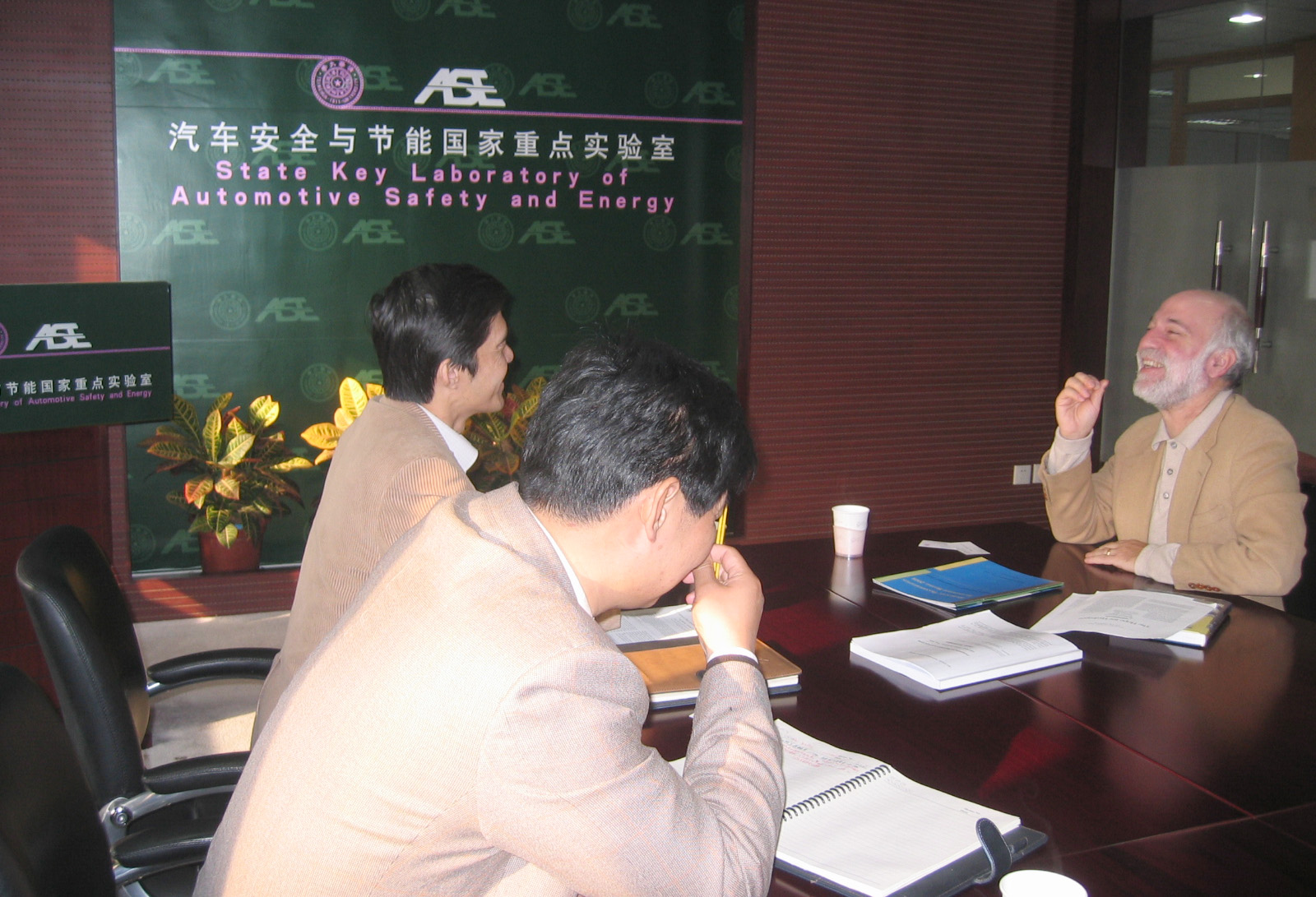2. Research and Practice
Institute of Transportation Studies
Professor Sperling founded the UC Davis Institute of Transportation Studies (ITS) in 1991. His vision for the institute centered on urban transportation, encompassing various modes of transportation, fuel technologies, the relationship between transportation and the environment; and the development of guidelines. The ITS's special feature was its success in fostering strong connections among industry, government, and environmental groups.
In his search for funding for the ITS, Professor Sperling sought support from the petroleum and automobile industries, national government agencies such as the Department of Transportation, the Environmental Protection Agency, the Department of Energy, as well as other foundations. All of these organizations responded positively. He also successfully established cooperative relationships with governments and corporations in other countries. In the 1980s, when Professor Sperling began focusing on the connections among transportation, the environment, and energy, few researchers were engaged in this field. However, the world gradually began to recognize the significance of his work. Transforming urban transportation in real-world settings requires more than conducting research and publishing the findings. It also demands building partnerships and collaborative relationships with industries that develop technologies, government agencies that establish regulations for their use, and environmental groups that advocate for sustainability.
Research on Alternative Fuels
One of the areas that Professor Sperling has conducted his research on is alternative fuels. These are substitutes for fossil fuels used to power cars and other forms of transportation. Examples include electricity, hydrogen, biofuels, and natural gas. Some alternative fuels produce no greenhouse gases or air pollutants, making them key to reducing environmental pollution.
However, researching new energy sources such as alternative fuels is futile if companies do not produce vehicles or products that use them, or if consumers fail to adopt such products or fuels.
With the help of drivers chosen from the general public, Professor Sperling and his colleagues conducted research on people's experience of cars that use alternative fuels. He found that electric cars, which are quiet, non-polluting, and comfortable to drive, are popular as long as the price is reasonable. In addition, Professor Sperling submitted the results of his survey to the State of California, contributing to the creation of new guidelines. This effort led to the enactment of Zero Emission Regulations, which requires automakers to ensure that a significant portion of the vehicles they produce have no harmful emissions. These regulations effectively promoted the adoption of alternative fuels.
Professor Sperling has authored numerous books on alternative fuels. His first book, New Transportation Fuels, was a groundbreaking work that combined academic research and policy, two areas that had previously been considered separate fields. The book addressed global transportation issues related to vehicles, fuels, and land use, and it had a significant impact on society.
In his 2009 book, Two Billion Cars: Driving Toward Sustainability, he examined the environmental impact of America's continued reliance on fossil fuels. He also outlined a path to a sustainable future, considering various perspectives, including alternative fuels, vehicles, consumer behavior, and policy.
Low-carbon Fuel Standards
In 2007, following a request from then-Governor Arnold Schwarzenegger, Professor Sperling became a member of the California Air Resources Board (CARB), which handled air pollution and climate policies. The State of California was a pioneer in implementing the Zero-emissions Vehicle Program. Professor Sperling had a significant influence on the establishment of these standards, which would impact, to some degree, not only the entire U.S. but also Japan and the world. However, there were still many difficult issues, as this was still a new and challenging area.
Professor Sperling worked to develop measures for energy and climate change from the perspectives of vehicles, fuels, and consumers. The most important of these was the creation of a low-carbon fuel standard. This standard aimed to limit the greenhouse gases emitted during production, delivery, and use of vehicles to below a certain threshold. The goal was to reduce the greenhouse gas emissions across all fuel-dependent processes, as the use of fuels in both production and transportation generates emissions.
The low-carbon fuel standard also has a structure that encourages industries to cooperate for compliance. Companies that emit less greenhouse gas than the level set by the standard are eligible to receive payments from companies whose emissions exceed the established threshold. These results led to a reduction in greenhouse gas emissions.
Professor Sperling and his team held numerous discussions with people working in government agencies, as well as representatives from the petroleum, automobile and electrical industries; and members of environmental groups. With each group having different goals, the discussions were often challenging, and finding common ground was difficult. However, they worked together in the spirit of compromise, which enabled them to formulate a fair standard based on scientific data. It was a revolutionary standard that transformed the petroleum industry.








